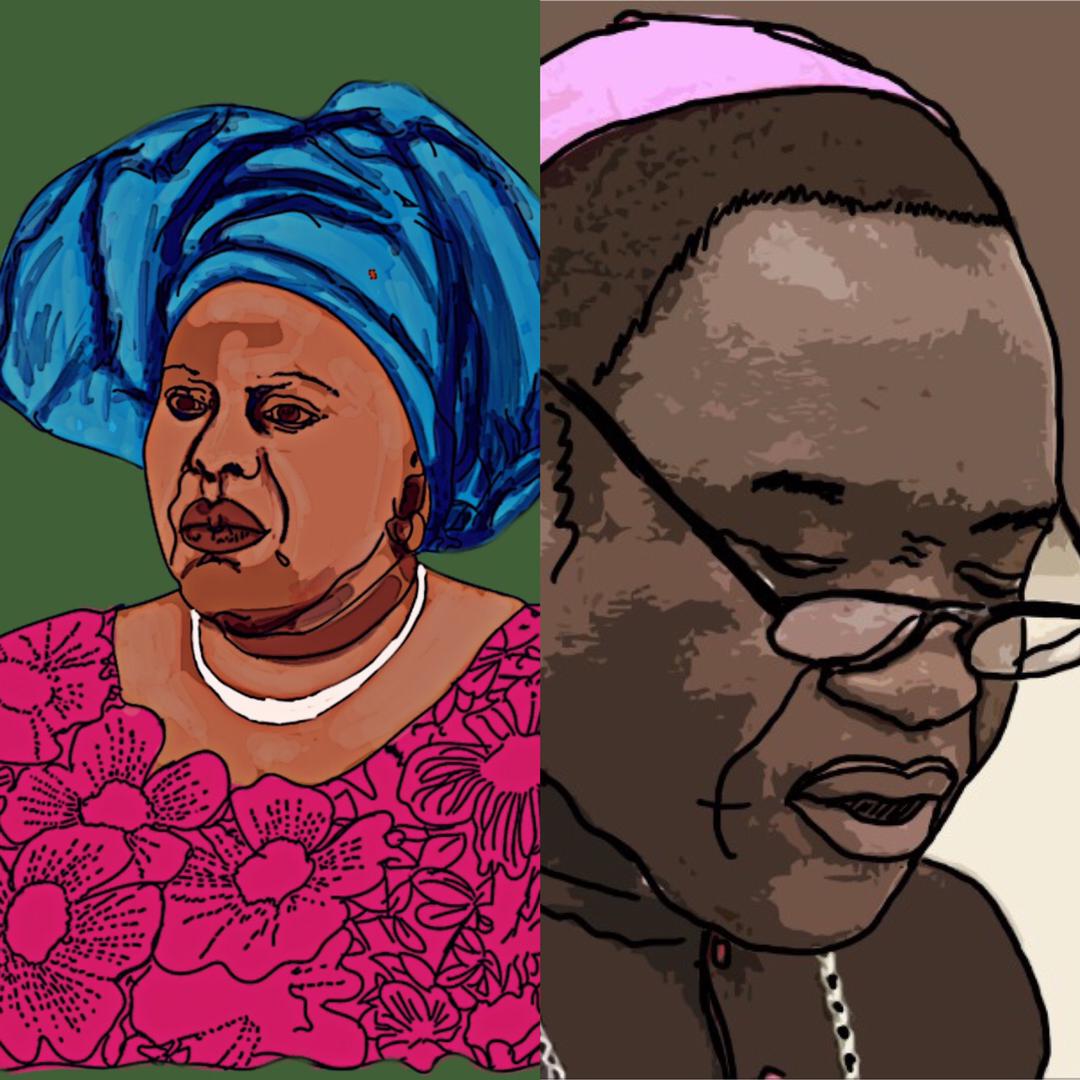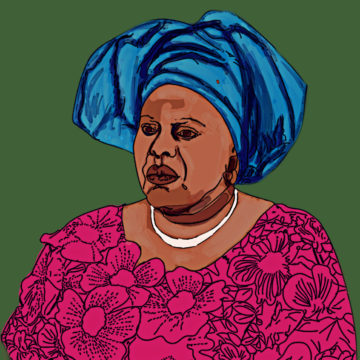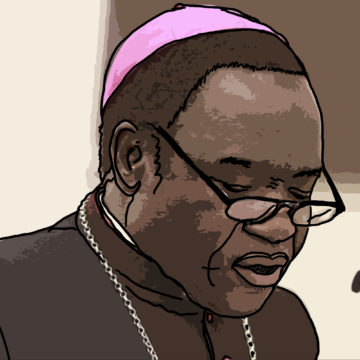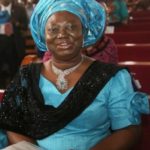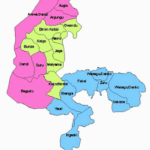On March 6, 2021, Odia Ofeimun, celebrity public intellectual, gave the 2021 Obafemi Awolowo Lecture with key figures in attendance: Wole Soyinka as Chair, Chief Emeka Anyaoku as the Special Guest, and His Eminence, the Sultan of Sokoto, Sa’adu Abubakar, as the Royal Father of the Day. The members of the audience were star studded, including the former Emir of Kano, Sanusi Lamido Sanusi. Odia Ofeimun presented the grave dangers in our polity. The next day, on March 7, The Toyin Falola Interviews hosted Bishop Hassan Kukah, interviewed by prominent public figures (Ayisha Osori, Chido Onumah, Dapo Olorunyomi) and two talented graduate students, Ndidi Akahara and Paapa Nkrumah.
The context for both events was the same. The agenda of both were the same: to understand Nigerian politics at a time of anxiety. In this piece, I frame both the context and the solutions as inferred from the two back-to-back events, clearly unprecedented in the history of the country.
The year 2020 was terrible for Nigeria! As if the COVID-19 pandemic and its overbearing effects on the economy were not enough, there were kidnappings, herdsmen/farmer crises, the never-ending Boko Haram insurgency, and a series of deaths and harassment that culminated in the #EndSars movement. At the close of a truly trying year, there were revived hopes that the coming year would bring some sanity, at least. However, 2021 has only added its bit of ugliness to the dregs of the 2020 malaise. As we all know, #EndSars is much alive; kidnappings and extrajudicial killings by the state’s trigger-happy security network have not abated. There have been ethnic-targeted attacks on Orlu, incessant school raids in the North with hundreds of schoolchildren falling victims to kidnappers, and an added ugly incidence is in the increasing ethnic killings, especially in the recent conflict in Sasa, Ibadan.
Many have stated loudly on the need to reclaim Biafra, warning the Igbo to withdraw home. The youth and adults alike have started aligning with the Biafran agenda. The demand for an Oduduwa Republic has become a mantra among many Yoruba—we have witnessed the rise of Sunday Igboho and his teeming supporters, the ultimatum in different parts of Southwestern Nigeria, and the more pronounced flag-bearing of an independent Yoruba nation.
The North has not been silent in these recent outbursts—the Arewa threatens revenge for the killing of their kinfolks in the South. At the heart of these invigorating clamors for a breakaway is the country’s jeunesse. The youth, attacked on all fronts by the multi-faceted problems of Nigeria and having not experienced the throes of the first attempt at a breakaway, are resolute that a decomposition of the country is the ultimate solution to the problems we face as a nation. Social media secessionist debates have been sparked; suddenly, everyone is more concerned about secession than ever before. It is in this light that we see a surge in the number of young Nigerians aligning with secessionist causes in different parts of the country.
While it is apt to consider the legitimacy of many of these ethnic groups’ premises, and while the increased clamors for a separation are understandable, the dismantling of Nigeria should not be a routine talk, considering a long history of secessionist movements in Africa, the complexities of each African country, and the plural nature of many of these countries. We have lessons from our own history to learn, albeit many have failed to be students of history. Should we fail to learn from our own past, we should know that even South Sudan, which would serve as a morale booster for the possibility of a breakaway, has also warned of the perils of such dangerous endeavors. Less than two years after its independence, South Sudan got itself entangled in a civil war triggered from among its presidential guards until it engulfed the entire state. The Eritrea-Ethiopia saga didn’t end well either—it took twenty years for the two to reconcile and agree to a lasting peace accord after the Eritrean War for Independence that lasted between 1988 and 2000.
Nigeria may be worse, and there are reasons that support this suspicion. First is that the country’s population is humongous, but there is also a repeatedly mistaken conception of its composition. It is not a country of three ethnic groups, but of over 250 diverse ethnic groups, each with a desire to control its resources and be politically autonomous. Components had previously collapsed, and there is a history that reveals the outcome. The mighty Oyo Empire fell to internal strives succeeded by more significant wars–the Batedo war, the Mugbamugba war, the Ijaiye war, the Ekiti-Parapo and the Egba—Ijebu wars. Northern Nigeria has always been one of the fratricidal internecine wars between Kano, Zaria, Kaduna, Gobir, etc. At the same time, the Igbo keep making distinctions among themselves and do not identify with an absolute cultural identity, let alone a political one; this is a major issue that Nnamdi Kanu still has to contend with. In the end, one will discover that the political authority at the federal level, albeit very fragile, is still the reason the crises across the country remains containable.
In some other corridors, there have been clamors for a restructuring that would see individual regions autonomously controlling their resources, though we would still share the unifying umbrella name called Nigeria. The issue with this school of thought is that the proponents also make the mistake of seeing Nigeria in a tri-dimensional light. It is virtually impossible for Nigeria to restructure and give autonomous power to its regions without witnessing gross marginalization of many ethnic groups. The first question is: how many regions can Nigeria be divided into to effectively cater to the diverse ethnic groups in the country? How will leadership positions be allotted in each region? In the absence of Federal Character, shall we adopt Regional Character? What shall be the scope of this Regional Character? Ogun State, one of the smallest states in the federated Nigeria, is a typical example of the many unending questions that make the thoughts of regional restructuring unpleasant to the rational ear. Ogun is ever bedeviled with never-ending precarious tensions among the Ijebu (with no love lost between Ijebu Ode and its neighbors, the Ijebu Remo) on one hand, and the Egba-Abeokuta and Egbado (and the Egbado and Awori) on the other.
The Nigerian malaise is not an illusion; it does exist. However, what we should ask ourselves is whether the pros of secession outweigh the cons, especially as matters peculiarly relate to the Nigerian nation. If the latter outweighs the former, then we must know that our solution lies not in secession but in inward reflection. Let us study the peculiarities of our nation to address the problems militating against the country.
We cannot continue to live together precariously, longing for each other’s throats and thirsty for each other’s blood, with open-declaration secessionist threats. There is a reason why humans are touted to be the most rational of all living beings—it is our ability to reflect, weigh options, reconsider and realign. Secession seems not to be the solution for Nigeria, at least, not yet. Ironically, even the United States of America moved from confederation, a form of proposed restructuring that many Nigerians are asking for, to a strong unified nation based on federalism. Therefore, we call for urgent matching and sustainable solutions:
- The feeling of marginalization is in every part of the country, traced to a series of appointments favoring a group over the others. The citizens don’t see themselves as members of a just and fair nation, and this is fueling a call for secession. In a nation where some citizens do not see themselves as part of the country, there can never be unity. Case in point is Mali, where the gross marginalization of Northern Mali led to a series of rebellion and uprising. Mali was once considered as the quintessence of democratic rule in Africa, but the discrimination and marginalization of Northern Mali set the course for a crisis that has culminated in coups d’état, the most recent being the 2020 overthrow of Boubar Keita. Nigeria is toeing this same line as there have been ridiculous and unlawful appointments, one of which is the recent extension of the Inspector General of Police’s tenure by three months. Politicians represent themselves to share the nation’s wealth and not to develop spaces and people. Ridiculous community development programs such as goat donation are the order of the day. The Federal Government has to assume responsibility and take charge of the situation without any ethnic bias—appointments should not be based on religious or ethnic affiliations, but on competence and the readiness of appointees’ to key into the nation’s vision. No part of the Nigerian nation should be made to feel like the outcast—since we agreed to this multi-ethnic marriage in seeking a joint independence in 1960, we should move the nation forward unanimously, not leaving any sections behind.
- The Fulani herders’ crises must be effectively put to rest. People are more important than cows, and it is more than saddening that the government has had a laid-back, totally nonchalant approach to this crisis. Dousing the fire of the herdsmen predicament should be in the forefront of the president of the country’s agenda. That a herdsmen crisis is an issue in the 21st century should in itself constitute a national embarrassment. Open-grazing has shown its evil sides, and it is currently the number one reason for the ethnic war drum. Ownership and use of firearms or any form of ammunition by non-state actors should be outlawed entirely. It runs contrary to commonsense, for example, when Governor Bala Muhammed of Bauchi State opined that herders need guns to protect themselves. In his warped logic, every Nigerian needs a gun for self-protection. Practice widespread gun ownership for 24 hours and see if his exploited domestic workers would not kill Bala Muhammed himself, let alone the police or one’s rude neighbor. The beef market is, without a doubt, the largest meat market in Nigeria, and that’s a reason why the government should take the herders’ crises seriously. While open-grazing is cheaper, it is also adversely affecting the largely subsistence farming practice in the country. Farmers can hardly get enough to feed themselves and their families. The little they have is constantly being raided upon by herders and their cattle. The government should consider a private-public partnership for the creation of sustainable ranches all over the country. A man who doesn’t have enough resources to take care of a goat has no business rearing goats, and this same rule applies to cattle ownerships. The adoption of the ranching method will bring a finite end to the herders/farmers clashes in the country.
- State and local governments should be responsive. They are closer to the people and can always prevent or nip crises in the bud before they degenerate. The essence of grassroots governments is to have close-knit relationships with the people. What purpose do local governments serve in the nation when the people feel closer to the federal government than their local government? How many Nigerians know their local government chairman, as compared to knowing the federation’s president? The third tier of government in Nigeria is playing little to nothing of its roles. The distanced nature of these tiers of government to the people and their failure to actively respond to the issues at hand will only result in more societally endorsed people-advocates. Sunday Igboho will only be the first of many to rise to take the law into their hands. Indeed, unabated chaos creates a vacuum needing heroes to which anyone can respond. Do we want a state of organized anarchy?
- Gumi should check his tongue. At this point when the chords bounding us together in unity are frail, unbridled tongues, such as Gumi’s, can throw the nation into a full-blown war. Gumi fanned the embers of ethnic disunity when he told bandits that the soldiers killing them are “not from here,” that they should, therefore, refrain from kidnapping the Hausa in return, hinting at a redirected attack on non-Hausa, non-Moslem soldiers. It is hurtful that the federal government did nothing to curb people such as Gumi, though the news of his controversial speech spread like wildfire. Gumi should have been the scapegoat to serve as a deterrent to other Gumis after him, because statements such as that threaten our continual unity as a nation. Soldiers would have heard that speech—Hausa and Hausa-speaking non-Hausa soldiers alike. And what shall it profit us if the seed of discord is sown amidst our armed forces? If the army took to watching their backs for internal attacks rather than jointly uniting to combat the common enemies? The effects of speeches such as Gumi’s on the morale and performance of the army cannot be underestimated—Gumis need to be silenced, as our national unity cannot be sacrificed on the altar of unjustly biased speeches.
- The people’s concerns—especially in regards to the nation’s security network—should be addressed. The people are genuinely fed up by what the nation’s security network constantly subjects them to. Gross violations of human rights, no justice for the victims of the #EndSARS protests, continued persecution of some activists during the protests, and the total lack of change in the modus operandi of the nation’s security network have all left the people embittered. It is saddening to know that one’s struggles and advocacies seem largely in vain. The government promised change, and systemic change is needed in the nation’s security network. The government needs to rise to the occasion that the labors of our heroes recently passed and their counterparts still struggling to thrive may not be in vain.
The current crisis is caused by self-destruction, failure to bring development to the people, careless policing, and a lack of transparency and accountability at all government levels. Disunity will lead to more violent tendencies, which may end in wars that might tear the country apart. The ethnic composition and the reality of socio-political and economic disaffections among minority groups do not harbor well for a fratricidal war. We could achieve more of national unity with a constitutional review that promotes citizenship, patriotism and belongingness than the parochially negative and divisive federal character that subjects one’s rights and entitlements and national stake and cake to one’s ancestral local government of origin. We need such a Constitution that allows Nigerians to hold political appointments in the Americas and Europe and to become Members of Parliaments in the United Kingdom. We can beat the drums of peace, not to postpone our evil days, but to lay the foundation of a strong, just, and blessed nation.

